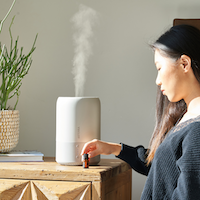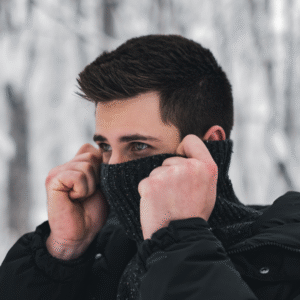Cold-Weather Eczema Tips: Keep Your Skin Calm & Protected
When temperatures drop and indoor heating kicks in, people with eczema often face a new set of challenges. Cold air, low humidity, harsh winds and dry indoor heat all can strip moisture from the skin barrier — making eczema flare-ups more likely. Cumberland+3NIH MedlinePlus Magazine+3National Eczema Association+3
At VUC, we understand how seasonal changes impact your skin. If you’re managing eczema, here are vital cold-weather tips to help you stay comfortable and in control, whether you’re indoors or out.
1. Moisturize Immediately & Often
Your skin’s barrier is weaker when the air is dry. Right after a warm (not hot) bath or shower, apply a thick, fragrance-free cream or ointment to lock in moisture. Choose formulas with ceramides or glycerin if possible. Johns Hopkins Medicine+2Healthline+2
Tip: Keep your moisturizer by your bed and in places you use frequently such as your desk or living room. Reapply after washing hands or wiping exposed skin.
2. Use a Humidifier & Avoid Over-Drying Indoors
Indoor heating systems are one of the main culprits behind winter eczema flares. A humidifier can add moisture back into your environment and reduce damage to the skin barrier. National Eczema Society+1
Pro Tip: Aim for indoor humidity between 30-50%. Open windows briefly once a day to refresh air and reduce indoor allergens.

3. Dress Smartly & Choose Breathable Fabrics
Cold wind, wool sweaters, and synthetic fabrics can irritate sensitive skin and trigger eczema. Instead, opt for soft, breathable layers—especially cotton—when heading outdoors or when indoors with heating. National Eczema Association+1
Consider: Wear a thin cotton base layer, and avoid wool directly on skin—even if you add an outer layer for warmth.

4. Shorten Baths/Showers & Use Lukewarm Water
Hot water may feel comforting in winter, but it strips your skin’s oils and worsens eczema. Keep showers to 10-15 minutes, use lukewarm water, and gently pat yourself dry before moisturizing. Healthline+1
5. Know When to Seek Professional Care
Even with the best routine, eczema can flare—especially if you notice signs of infection (like oozing, pus or significant swelling). At VUC, our licensed virtual providers can evaluate your condition and guide you toward the right care. For persistent or worsening eczema, we’ll help determine if an in-person visit is needed. Many of our patients with eczema benefit from our full list of conditions we treat at VUC.
According to the Centers for Disease Control and Prevention (CDC) and dermatology guidelines, frequent flare-ups or signs of infection warrant professional attention. Cleveland Clinic+1
The Takeaway
Winter doesn’t have to mean constant itching, flares and discomfort. By moisturizing often, using a humidifier, dressing wisely, and avoiding harsh fabrics and hot water you’ll give your skin a stronger defence. And remember—you’re not alone. If your eczema needs more than self-care, VUC is here to help you find the right treatment, online or in-person.
If you’re ready to manage your eczema this season, book a virtual visit with VUC today and start your personalized skin-care plan. Not sure how a virtual appointment works? See how to prepare for your virtual visit.

